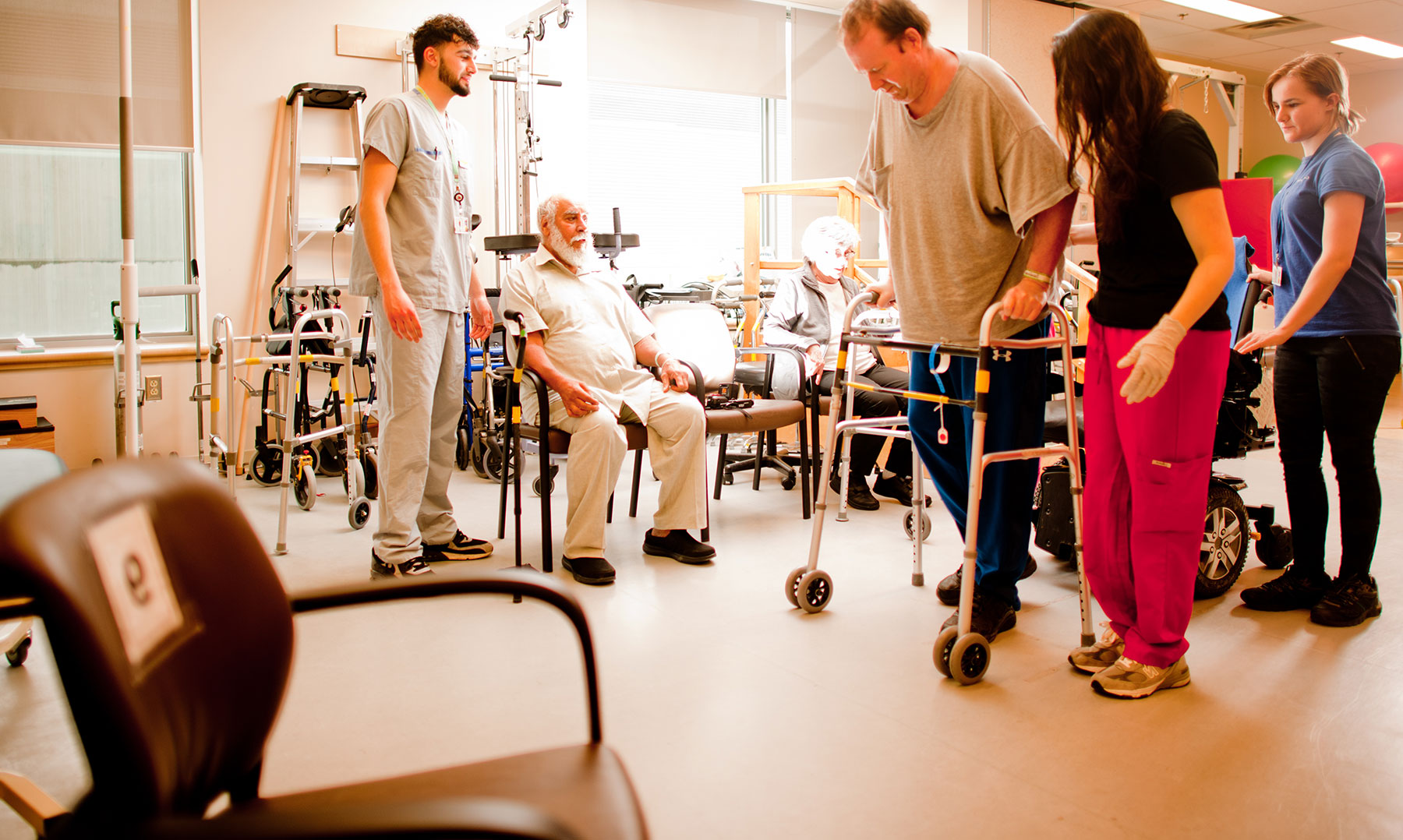- Previous falls
- Fear of falling
- Unsafe environment
- 65 years of age or older
- Confusion/dementia
- Poor nutrition/dehydration
- Lack of regular physical activity
- Changes in balance, muscle strength, sensation, and flexibility
- Slower reflexes
- Decreased vision or hearing
- Using sleeping pills or pills to calm your nerves
- Medical conditions such as diabetes, arthritis, osteoporosis
- Mixing medications with alcohol
- Taking four or more prescribed medications daily
If you do fall, please remember to visit your doctor and consider using community resources (either referred by your family doctor or self-referral to Ontario Health atHome). Here are some tips to help protect your quality of life:
- Utilize hearing and vision aids as recommended.
- Never rush to the phone/bathroom.
- Move closer to out-of-reach objects, do not over stretch to reach objects.
- Walk carefully around household pets.
- If you use oxygen, hold the tubing in your hand while walking to prevent stepping on the tubing or tripping over it.
- Keep your assistive device within reach at all times and use as recommended.
Preventing falls at home |
|
Below is a home safety checklist to help prevent falls at home. General:
Entrance:
Living area/bedroom:
Bathroom:
Kitchen:
|
Preventing falls in hospital |
Below is a checklist to help prevent falls while in the hospital.
If you are coming in for a clinic visit or through the Emergency Department, please let the staff know if you did not bring your mobility device with you but require one. Bed rail safetyBed rails help patients move on their own, like repositioning in bed and moving from bed to the chair. Patients and family often believe bed rails will help to prevent falls. It’s important to know that bed rails can be a form of restraint and that they are not proven to prevent falls. Most patients can be in bed safely without bed rails. All options will be explored with patients and families before any form of restraints—including bed rails are used. Please discuss with your care team whether or not bed rails are indicated and remember to keep the bed at the lowest level except when receiving care. |
Community resources |
|

